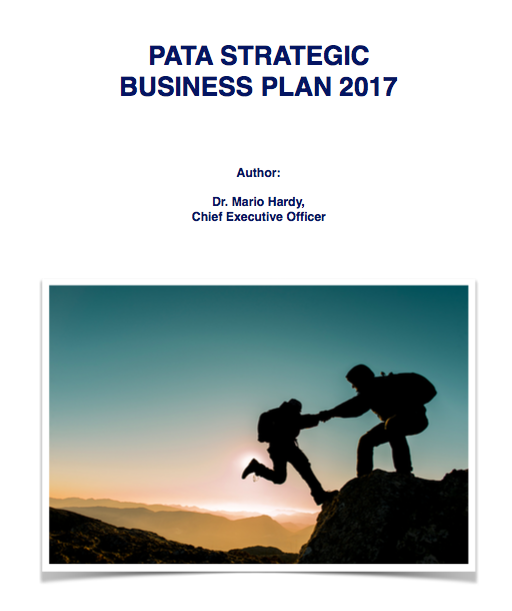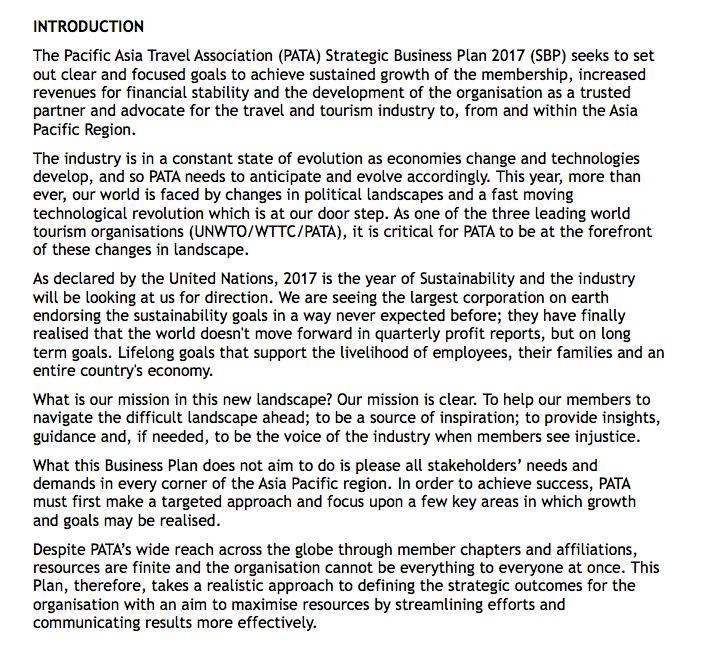
15 May, 2017
20 years after moving to Asia, a chance for PATA to reclaim its former glory
Bangkok – The PATA Annual Summit to be held 18-22 May in Sri Lanka offers a golden chance for the regional travel organisation to capitalise on a number of converging opportunities and regain the leadership status dating back to 1998, when it moved the HQ from San Francisco to Bangkok.
The Summit takes place against the backdrop of unprecedented systemic global change, including leaderships at the national and industry levels.
The transition in CEOs at both the UN World Tourism Organisation and the World Travel & Tourism Council will see both in a state of flux for at least six months as the new leaders settle in, carry out internal restructuring and reshape the agendas and executing strategies.
Although the three-year contract of PATA CEO Mario Hardy is also up for renewal — a key item on the PATA Executive Board agenda next week — a number of EB members have said it should be a routine extension. Mr. Hardy himself has publicly stated his readiness to stay on for another three-year term.
Aside from the fact that PATA can ill-afford a change in CEO, neither operationally nor financially, there is little doubt that Mr. Hardy has done a stellar job in putting PATA back on even keel.
He has restored trust, transparency, humility, integrity and stability and kept it focused in the midst of a turbulent operating environment. The business plan he will be presenting for approval at the PATA AGM next week offers some strong pointers on how he plans to stay the course.
Perhaps the best opportunity lies in commemorating the 20th anniversary of the association’s move to Bangkok in 2018.
One of the greatest chapters in the history of Asia-Pacific travel & tourism is how an association that moved to Asia to take advantage of the rise of an Asian Century actually became a victim of the crises and turbulence that followed.
PATA’s shift to Asia came in the immediate aftermath of the 1997 economic crisis. Barely had the region recovered that 9/11 hit, followed by the U.S.-led attacks on Afghanistan and Iraq.
Then came the internal upheavals within Thailand itself. At the same time, sustainability took centre stage, the technological revolution gathered pace and transport liberalisation saw the growing influence of low-cost airlines.
The CEOs and senior executives who headed PATA in the days after the move to Bangkok simply could not stay abreast of the winds of change. They were not the only ones. Similar to counterpart groupings such as the International Hotels and Restaurants Association and the Universal Federation of Travel Agents Association, the PATA agenda just got overtaken by events.
The response reflected the cluelessness. Sick of the internal politics, ego-massaging and publicity stunts, many PATA members reviewed their return on investment and decided that PATA was no longer relevant, with a significantly diminished value-for-money proposition.
Mr. Hardy inherited this mess. Reclaiming lost ground has not been easy.
Today, the figures speak for themselves. At the PATA AGM in Sri Lanka, Mr. Hardy will be presenting a budget that shows three years of black ink under his watch, including the forecast for 2017. The forecast is being deliberately kept realistic and conservative in order to avoid creating over-expectations.
But, harking back to the famous saying of finding opportunities in every crisis, 2018 will be a good year to restore the PATA glory. The 20th year of PATA’s move to Asia will be a chance to take a cold, hard look at the past, learn the lessons of history and shape a global agenda that reflects the new realities, many of which were aired at the April 26-27 WTTC Summit in Bangkok.
Indeed, both Thailand and Sri Lanka offer unparalleled learning experiences.
Thailand today gets more tourists in one month than it hosted in an entire year in the early 1980s. However, the stability of the country once known as the Land of the Free is underpinned by a military dictatorship that is becoming increasingly draconian.
The fortunes of both Thailand and PATA are interlinked. Next year, Thailand will host the first ASEAN Tourism Forum of the second half of the ASEAN Century. That is another opportunity for PATA to exploit.
The Sri Lankan experience too has much to offer. The strategically located island is undergoing its own nation-rebuilding challenges in the aftermath of a brutal decades-long internal conflict, and looking to travel & tourism to play a leading role in that process.
Although the timing and venue of the PATA summit could not have been better, the challenges are clear.
Mr. Hardy is very fond of the word ‘disruption’ in a technological context. But the most important ‘disruption’ applies in a much broader context. Factors such as the Brexit vote and the mercurial behaviour of the U.S. President Trump, whose election could best be described as the “mother of all disruptions”, will mean many more years of an unstable operating environment.
Travel and tourism can still play an exceptional role in being a part of the solution. As AirAsia CEO Tony Fernandes said at the WTTC Summit, no matter what happens, the people of ASEAN and Asia still continue to travel. Some change their destinations, other adjust their budgets, but as long as the price is right, they will always hit the road.
That fundamental is the Asia-Pacific region’s trump card. Having averted collapse, PATA can go back to the future and fulfil the agenda it was originally supposed to when it moved here just before the turn of the century.





Liked this article? Share it!